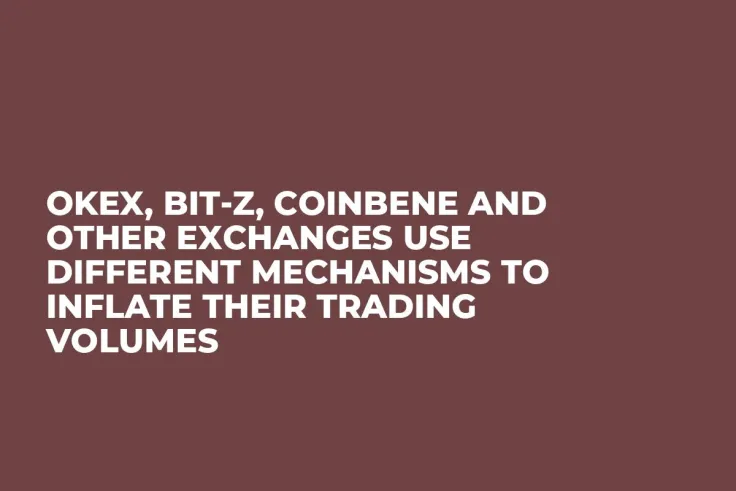Crypto Integrity has recently revealed the mechanics of wash trading that are employed by major cryptocurrency exchanges. OKEx, one of the leading exchanges, also appeared on the list of exchanges that disguise their real trading volumes.
Many faces of wash trading
The study singles out three main wash trading mechanisms that differ in the difficulty of implementation:
-
In-spread trades without limit orders. The exchange reports the trades that do not appear in the order book at all. This instrument is popular with fledgling exchanges since it mitigates all risks that pertain to wash trading. OKEx, Bit-Z, CoinTiger, and other exchanges were involved in this activity.
-
In-spread trades with short-lived limit orders. The order appears in the order book for a minuscule fraction of a second, which makes it impossible for any traders to see it (unless we are talking about automated bots). Short-lived orders have been noticed on CoinBene, Bitmart, and IDAX.
Advertisement -
Trades near bid-ask caused by short-lived limit orders. In this case, traders try to disguise their malicious activities by placing orders of different sizes and with different life duration. OKEx is the only exchange to use the most sophisticated form of wash trading.
A mundane thing
As reported by U.Today, wash trading is extremely prevalent in the cryptocurrency space. In fact, an earlier study showed that seven out of ten exchanges that occupy the top 10 spots on CoinMarketCap (CMC) report fake numbers.


 Dan Burgin
Dan Burgin Vladislav Sopov
Vladislav Sopov